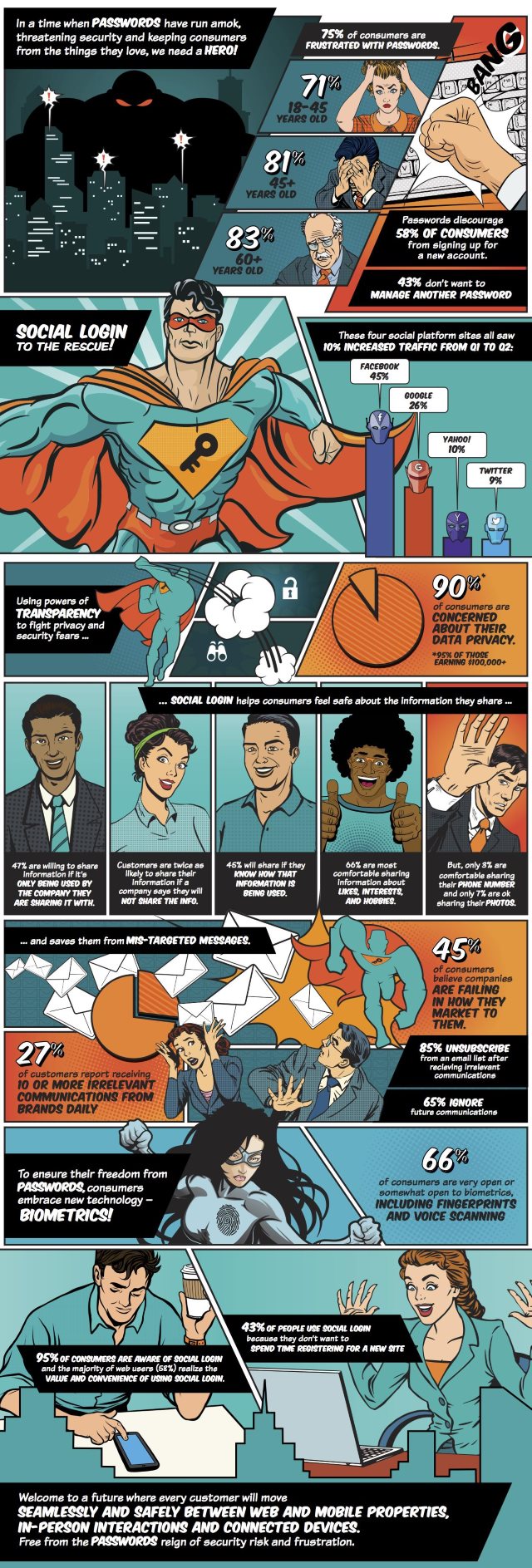Social logins -- the convenience and the risks

Increasingly people are suffering from password fatigue, so when signing up to websites it's very tempting to use existing social media accounts.
However, according to a survey from customer identity and access management specialist Janrain, 93 percent of people are concerned about how their account data and activity are being shared and used.
While consumers are largely in favor of biometric authentication -- 66 percent like the idea of using fingerprint scanning or voice recognition to access their accounts online -- social logins, which allow web users to quickly sign up or log on to sites using the credentials from another site, are overwhelmingly the preferred authentication method.
Facebook dominates the social login rankings with 43 percent of all social logins using its platform. This is unchanged from 45 percent in the first quarter of this year. Google comes in second with 26 percent (up from 25 percent in Q1), Yahoo at 10 percent (up from 7.5 percent) and Twitter with nine percent (up from 6.5 percent).
Perhaps most heartening for marketers is the discovery that a quarter of people are already realizing the personalization benefits that come from using the same identity across two or more of their accounts. Indeed, 58 percent of respondents say they often refuse to sign up to a new site without the option of a social network login.
There are concerns, however, 47 percent are willing to share their account data and activity as long as it's used only by the company they're signing up with, while 45 percent want companies to be clear how their information will be used.
For 38 percent the amount and type of data shared is crucial. Of all those surveyed, 39 percent are comfortable with sharing movies, books or sports teams they've liked on Facebook, for instance. For marketers this is an opportunity to connect to the interests and hobbies of consumers and build deeper relationships. Other topics are more sensitive though, only 13 percent are willing to share their political views, 12 percent their religion, 10 percent their relationship status, eight percent friends, and seven percent photos. In addition less than a quarter will share details simply to get something in return, such as a product offer or exclusive content.
"Social logins are table stakes for online businesses since most web users will no longer sign up to a new site without them," says Janrain's VP of product Jamie Beckland. "But privacy concerns are understandably high given some recent high-profile data breaches. Businesses need to do a better job in the way they use account data to market to users, as well as make sure they're clearly explaining how the account info they access is used and shared".
You can read more about the findings on Janrain's blog and there's a summary of the findings as an infographic below.

Photo Credit: Rawpixel.com/Shutterstock
